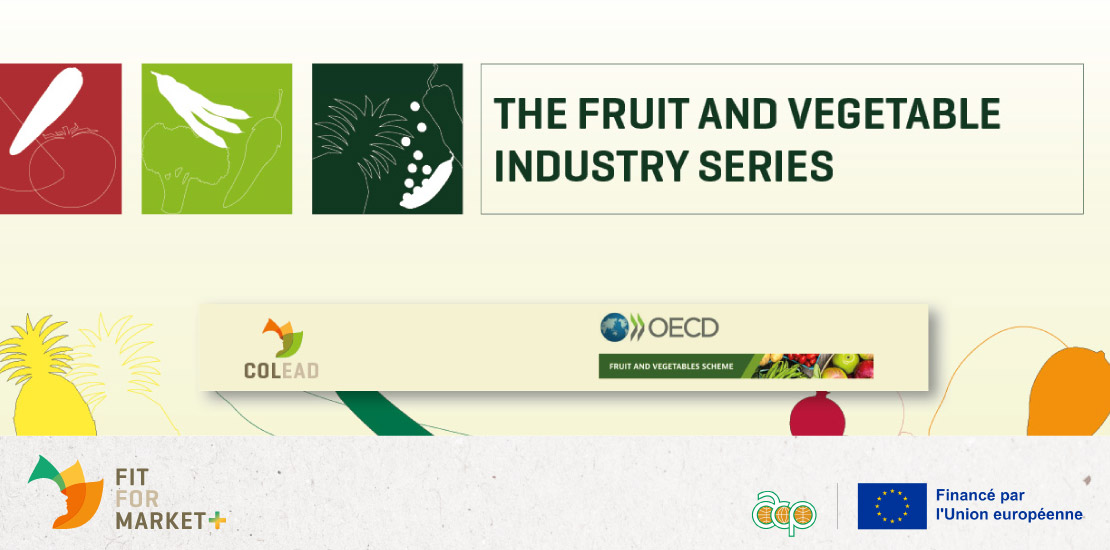OECD-COLEAD: Operational collaboration for the fruit and vegetable industry
- 11/10/2023
- Posted by: Sandra Borma
- Category: Corp EN, News

The OECD and COLEAD are committed to working together to collect and share information about the fruit and vegetable sector. Session n°5 of their online series will focus on Innovations and technologies to reduce food waste and losses and was held on Wednesday 11 October 2023 – 08:00-09:30 UTC/10:00-11:30 CET (English/French interpretation available).
The OECD has recently published a report on Developing food labels for improved health outcomes – Insights into simplified nutrition labelling policies to improve the integration and use of such schemes and to facilitate trade. The inception work was presented during a joint session on Policies for encouraging healthier food choices (see programme) convened in March 2022 by the OECD Fruit and Vegetables Scheme of the Trade and Agriculture Directorate and COLEAD. Over 300 participants attended this online session, during which experts and operators across the European Union and Global South countries discussed opportunities for the fruit and vegetable sector in contributing to healthy and nutritious diets.
Céline Giner, Agricultural Policy Analyst at the OECD Trade and Agriculture Directorate, opened the conversation by presenting Policies for encouraging healthier food choices, a report examining the negative impact of unhealthy diets on health systems and economies. The report also proposes a framework to combine different policy approaches to support the transition towards a healthier food environment in the most effective way. The four-track policy approach focuses on (i) tackling unhealthy food choices via demand side public interventions; (ii) working with stakeholders at the supply-demand interface; (iii) regulations to influence processors and retailers’ behaviour; and (iv) fiscal measures.
Nutritional food labelling schemes were identified as a key component of the supply-demand interface as they provide additional nutritional information in the form of a label displayed on food product packaging. While there has been a proliferation of labelling policies across the world, these schemes vary in the content and appearance of the message they share, and their implementation (mandatory or voluntary), and do not use the same nutrient profile models. With its latest report, the OECD aims to develop a common understanding of simplified nutritional food labelling schemes.
This session was organised as part of the OECD-COLEAD Fruits and Vegetables Industry Series, which aims to highlight the significance of the sector and its various dimensions (sustainability, nutrition, technologies, etc.).
This activity is supported by the Fit For Market Plus (FFM+) programme implemented by COLEAD as part of the development cooperation between the Organisation of African, Caribbean, and Pacific States (OACPS) and the European Union.
This publication receives financial support from the European Union and the OACPS. The content of this publication is the sole responsibility of COLEAD and can in no way be taken to reflect the views of the European Union or the OACPS.





